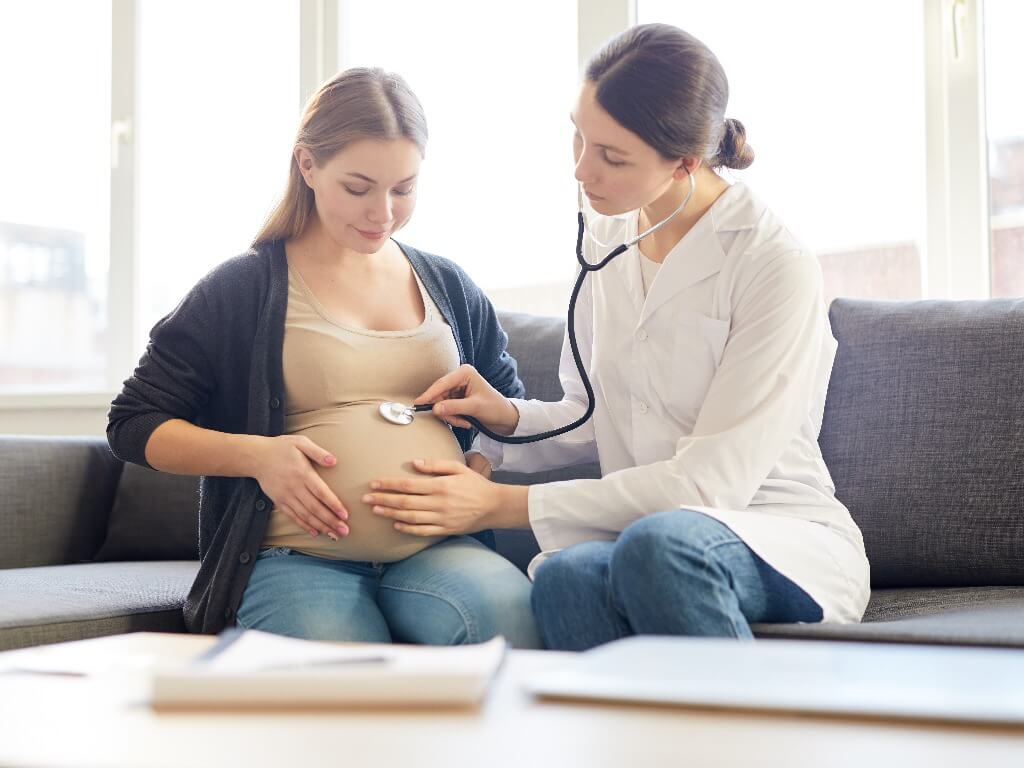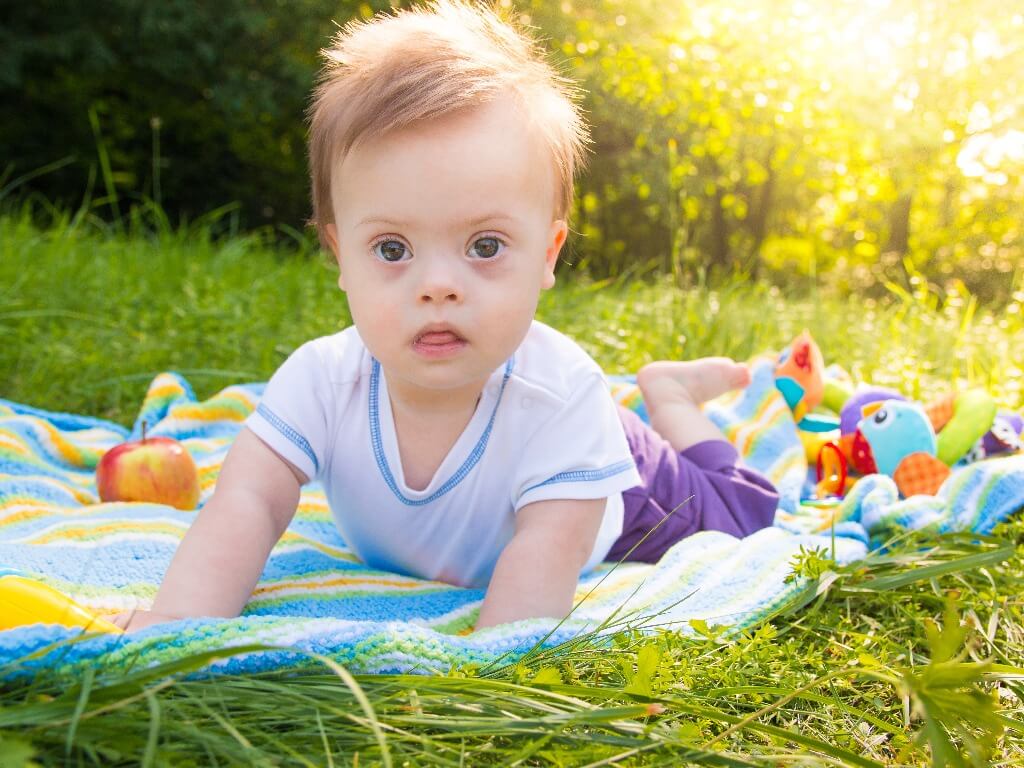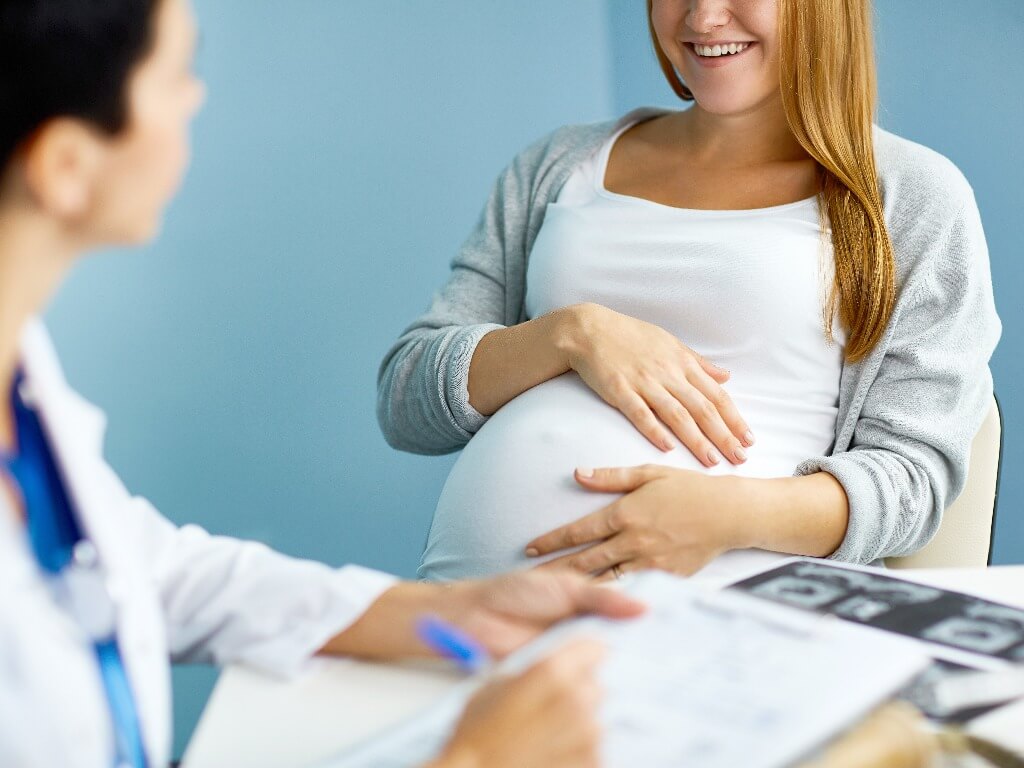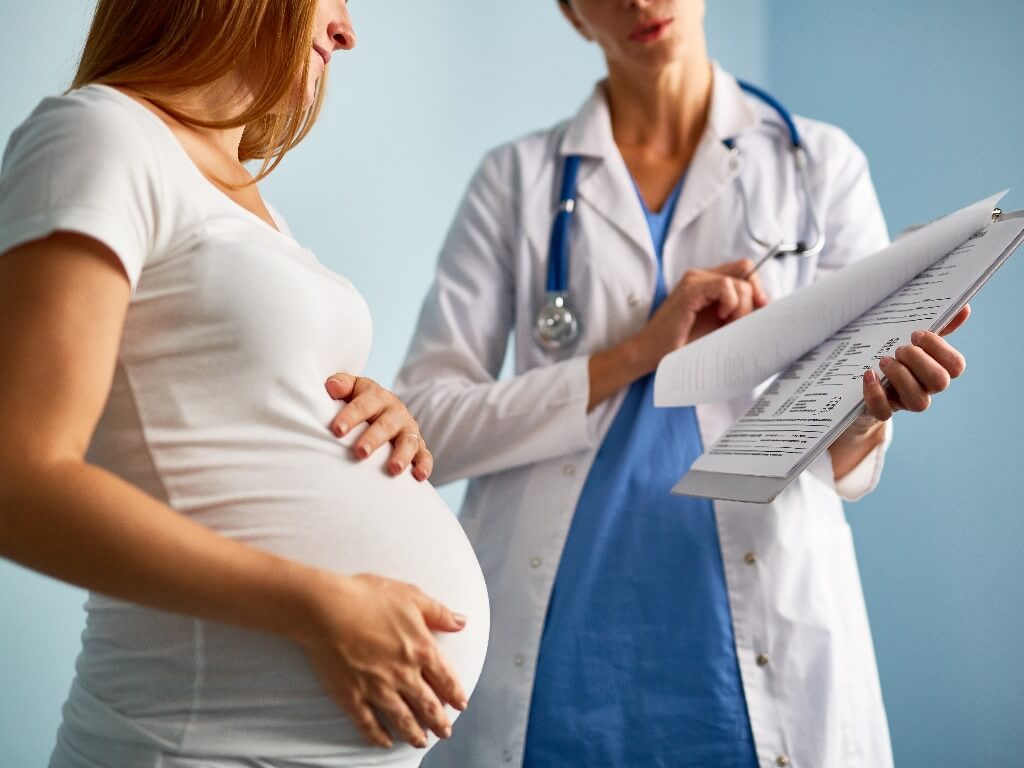When Does Down’s Syndrome Occur?
Down’s syndrome occurs by chance. It is a random event during cell division or during the formation of reproductive cells. As a result, some cells end up having an abnormal number of chromosomes.
For example, a sperm cell or an egg can have an additional copy of the chromosome 21. If one of these copies is included at the time of conception, the baby will likely have Down’s syndrome. Thus, a screening test can show whether there is a high or low chance of a baby with Down syndrome being born.
Down’s Syndrome Screening
Screening for Down’s syndrome is offered to most women as a routine test during prenatal care. The screening tests show the likelihood that a mother carries a baby with chromosome variations. Although they are easy to perform, these tests can’t accurately tell whether the baby has Down syndrome.
Screening tests are most often used to help parents decide whether they should have additional diagnostic testing.
There are a few types of non-invasive prenatal screening tests for Down’s syndrome.
The First Trimester Combined Test
- A blood test measures the levels of PAPP-A protein – pregnancy-associated plasma protein-A. High levels of PAAP-A may indicate further testing is necessary.
- The nuchal translucency test is an ultrasound test during the first trimester of pregnancy that measures a specific area on the back of the baby’s neck. The presence of substantial levels of fluid at the back of the neck indicates potential chromosome abnormalities.
Integrated Screening Tests
The integrated screening test can be performed during pregnancy’s first and second trimester. The combined results estimate the possibility that a child has Down syndrome.
In the first trimester, a blood test is performed to measure PAPP-A levels and an ultrasound to double-check nuchal translucency.
In the second trimester, a quadruple test screening measures levels of estriol, inhibin A, alpha-fetoprotein and human chorionic gonadotropin – HCG.
Prenatal Screening
Prenatal screening tests include an ultrasound and a blood test. Both combined measure substances that estimate the chances of a child with Down syndrome being born and are offered during the first and second trimesters.
But with the developing technology, medical professionals can perform prenatal screening tests as early as ten weeks of gestation. A blood test can now detect up to 98% of babies with trisomy 21 by analysing cell-free DNA that flows between the baby and the mother.
On the other hand, diagnostic tests such as amniocentesis and chorionic villus sampling can be up to 100% accurate in determining whether a baby has Down’s syndrome.
They are performed during pregnancy to:
- Estimate the chances of a baby having Down syndrome
- Confirm the presence of Down syndrome in an unborn baby

Down’s Syndrome Diagnostic Tests During Pregnancy
Should screening test results show a higher possibility of having a baby with Down syndrome, diagnostic tests for Down syndrome can be performed to confirm the diagnosis. Although these types of tests are more invasive, they provide a more accurate answer.
Three procedures are used for further testing:
- Amniocentesis
- Chorionic villus sampling CVS
- Percutaneous umbilical blood sampling PUBS
Amniocentesis Test
Amniocentesis is a diagnostic test done after 14 weeks of pregnancy and is usually more accurate than the screening tests. Aside from Down’s syndrome, diagnostic tests like amniocentesis can show whether there are other things to know regarding a baby’s health.
Health care professionals take samples of the amniotic fluid around the baby which can later provide helpful information about the baby’s health. However, it is essential to know the risks of the amniocentesis procedure.
The amniocentesis test can answer the following:
- If there’s evidence that the baby might have an infection
- If the chromosomes of the baby are in balance
- If the lungs of the baby are fully developed
- If the baby has any neural tube defect, such as spina bifida
Women might consider taking this test after the following:
- Receiving a high-risk screening result
- Missing screening for Down syndrome and being over the age of 35
- Receiving a scan result that shows fluid collection at the back of the baby’s neck (nuchal translucency)
- Receiving a scan that shows heart abnormalities
- Having another child with Down’s syndrome.
Chorionic Villus Sampling (CVS)
Chorionic villus sampling CVS is another diagnostic test that is not routinely offered in pregnancy. Health care professionals offer CVS testing if there’s a high chance of a child with Down syndrome being born.
Chorionic villus sampling is a biopsy, a blood test that includes taking a placenta sample to test for chromosomal abnormalities. Unlike the Amniocentesis diagnostic tests, CVS is performed between 10 and 12 weeks of pregnancy.
There are two types of procedures under CVS:
- Transabdominal – a needle is inserted right through the abdomen and uterus in the placenta to acquire a tissue sample
- Transcervical– a catheter goes into the cervix to the placenta to gather tissue samples.
Some of the reasons why a woman might choose to undergo CVS include:
- Abnormal cell-free DNA Test results
- Having another child that has Down syndrome
- Family history of chromosomal abnormalities
- Being older than 35
- Other ultrasound scans show abnormal findings
Percutaneous Umbilical Blood Sampling Diagnostic Test or PUBS
PUBS is a diagnostic test also known as cordocentesis. Health care professionals perform this invasive prenatal testing by taking a sample of the baby’s blood from the umbilical cord. PUBS gives the most accurate answer as to whether a baby has Down Syndrome during pregnancy.
However, this method is not commonly used because of the many risks it carries and often can’t be performed earlier than 18 weeks of pregnancy.
Postnatal Down’s Syndrome Diagnosis
As prenatal testing is not compulsory, parents have the freedom to choose whether to take them or not. Hence, there are cases of children with Down syndrome that get the diagnosis after birth. Health care professionals can confirm the syndrome due to the presence of specific physical characteristics.
Many distinct physical characteristics are related to children with Down syndrome, which could lead parents to suspect their baby has Down’s syndrome. Babies might have a one of more of the features that vary from person to person.
For certainty, a chromosome blood test or a combined test will be performed to correctly assess whether there’s a chromosome 21 variation in the blood sample.

Physical Signs of Down Syndrome Post Birth
After birth, the positive diagnosis of Down syndrome is often based on a baby’s physical signs and characteristics. However, there are some features associated with Down syndrome that can be spotted in babies that don’t have Down syndrome.
Therefore, a care provider needs to order a specific diagnostic test called chromosomal karyotype to confirm the diagnosis. A baby will be diagnosed with Down Syndrome if there’s an extra chromosome 21 in the cells. Some of the most common physical signs for people with Down syndrome include:
- Distinctive facial features
- Almond-shaped eyes
- Low muscle tone
- Small nose
- Short neck
- Small, folded ears
- A tongue that usually sticks out of the mouth
- A deep line across the centre of the palm
- Shorter height than adults
- Smaller hands and feet
- Excessive flexibility
What is Considered High Risk for Down Syndrome?
Researchers know some of the risk factors for Down Syndrome but not all. People with Down Syndrome can come from all ethnic groups.
Studies show that the possibility of a child being born with Down’s syndrome grows proportionally with the mother’s age during pregnancy.
The numbers show that:
- Pregnant women in their 20s have a 1 in 1,500 risk of carrying a baby with Down syndrome
- Pregnant women in their 30s have a 1 in 800 risk of carrying a baby with Down’s syndrome
- Pregnant women between 35-40 years of age have a 1 in 270 risk of carrying a baby with Down’s syndrome
- Pregnant women above 45 years of age have a 1 in 50 or higher risk of having a baby with Down syndrome
Also, parents diagnosed with Down syndrome or parents who have one or multiple children with Down syndrome are at a higher risk of having another child with this condition.
However, the risks are higher than these figures because most embryos with Down’s Syndrome will not develop fully due to the risk of miscarriage.
Who Should Get a Screening Test?

Every woman can choose to have a screening test for Down’s syndrome during pregnancy. Although at the screening phase, women can’t be certain of the accuracy of the results, tests show if there’s a lower or higher chance of carrying a baby with Down’s syndrome.
A combined test, for example, can show if the pregnancy is at an increased risk for other chromosome variations like trisomy 18 and trisomy 13.
All of the screening tests are voluntary. However, medical professionals advise pregnant women older than 35 to test for Down Syndrome. Also, families with a previous child with Down syndrome or other chromosome abnormalities can choose to undergo additional testing.
Finally, screening tests are often advised if specific foetal abnormalities are detected on an ultrasound check.
Will’s Story
Will was born with Down Syndrome; however, over the years, he started developing behaviours that challenge due to the inconsistent support he received from various care providers. Will and his family didn’t receive the proper support, which made life revolve around keeping things as calm as possible, with his mother avoiding going out and just spending time at home.
Leaf Complex Care supported Will and his family after being hospitalised due to a pulmonary embolism. They created a comprehensive Positive Behavioural Support Plan that outlined Will’s expectations and requirements. Out support workers were invested, and both Will and his mother witnessed how much of the PBS Will took in. Through humanised support, Will’s life improved significantly, and he started going out, exercising regularly, and enjoying time outdoors.
“This has enabled Will to become a more active member of his community. He can now attend family functions, whereas before, I was not confident to take him. His team comes along too, but they are respectful of his personal space – which has been a revelation to me.” – Maurizia, Will’s mom
How Can Leaf Complex Care Support Workers Help?
At Leaf Complex Care, we provide tailored complex care for every individual. Our experienced and exceptional support workers provide humanised care and support for people with complex needs.
Contact us today and allow us to take care of your loved ones.

